Civil servants 'micromanaging' Swansea Bay health board
- Published
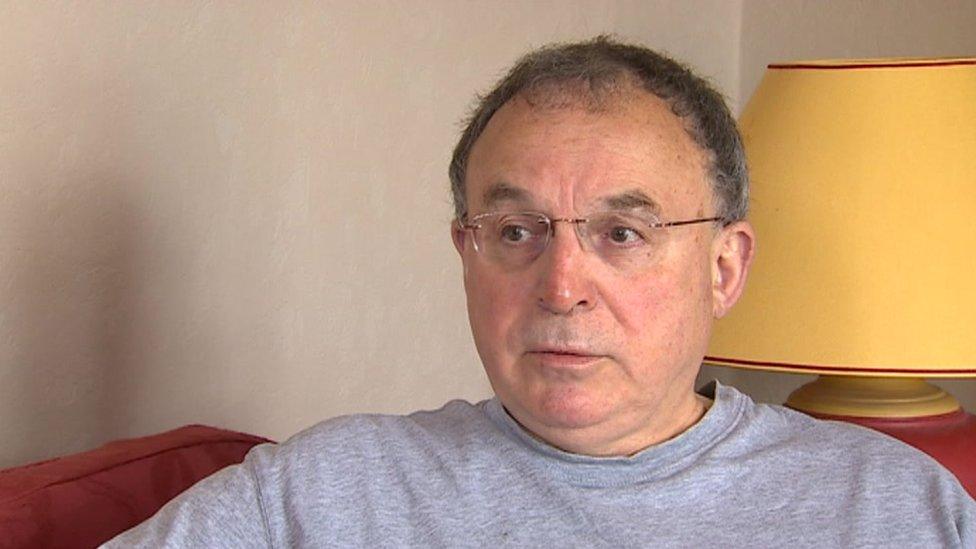
Andrew Davies said the "often very difficult" relationship prompted robust conversations between him and the health minister
Civil servants are "micromanaging" a health board and getting in the way of delivering services, its outgoing chairman has claimed.
Andrew Davies said officials at Swansea Bay University Health Board (SBUHB) were sometimes forced to take part in up to three or four conference calls a day with Welsh Government staff.
He has stepped down after six and a half years at the health board.
The Welsh Government said its input was aimed at improving performance.
Mr Davies, a former Labour Welsh Government minister, said the scrutiny could be unhelpful: "On a day-to-day basis you would get what I would call quite incredible micromanaging which everyone in the service recognises, but very few people actually call out.
"So particularly in the winter when you have intense pressure of unscheduled care with lots of ambulances waiting outside A&E departments, sometimes you can have three or four conference calls a day with Welsh Government officials.
"That degree of scrutiny is not actually helping them get on sorting out the problem, and that is fairly typical."
During his time as chairman, the health board faced severe criticism for the treatment of elderly patients in Bridgend and Neath Port Talbot.
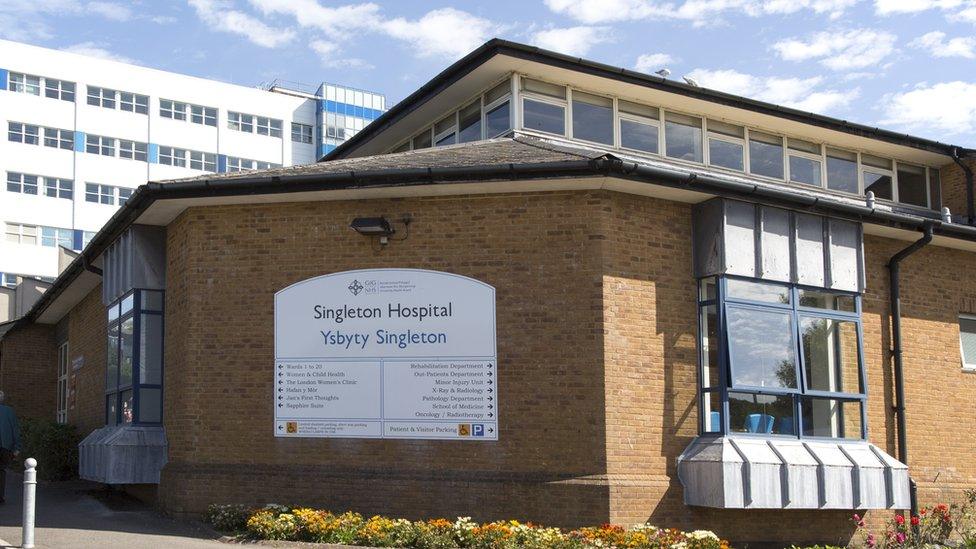
Mr Davies said the Welsh Government needed to come up with meaningful priorities
He said "one of the fundamental problems" was that the Welsh Government needed to make up its mind about whether it wanted to run the health service.
"You either give health boards the autonomy to run the health service for their populations or their areas or you give it to government and they run it directly," he added.
He described the relationship between his former health board and the Welsh Government as "often very difficult".
Abertawe Bro Morgannwg health board - as it was then known - was one of a number put under a heightened degree of Welsh Government oversight because it had failed to balance its budget.
Mr Davies insisted he was not afraid of accountability, but felt much of the target-driven approach was misguided: "I was a minister for 10 years, I understand the political pressures. I have been there, I have lived it.
"But it comes back to what do you want to get out of this? Is it the best way of getting the best service for the citizens and the communities we serve?
"This constant focus on short-term targets, I think, is widely recognised in academia and in the service as not the best way to get the best outcomes.
"There is a lot of evidence that it encourages game-playing and focuses on short-term performance."
A Welsh Government spokesman said: "Health boards are responsible for managing their services and ensuring patients receive the best care possible.
"However, the Welsh Government clearly has a system leadership and oversight role to help or intervene, when necessary to improve performance."
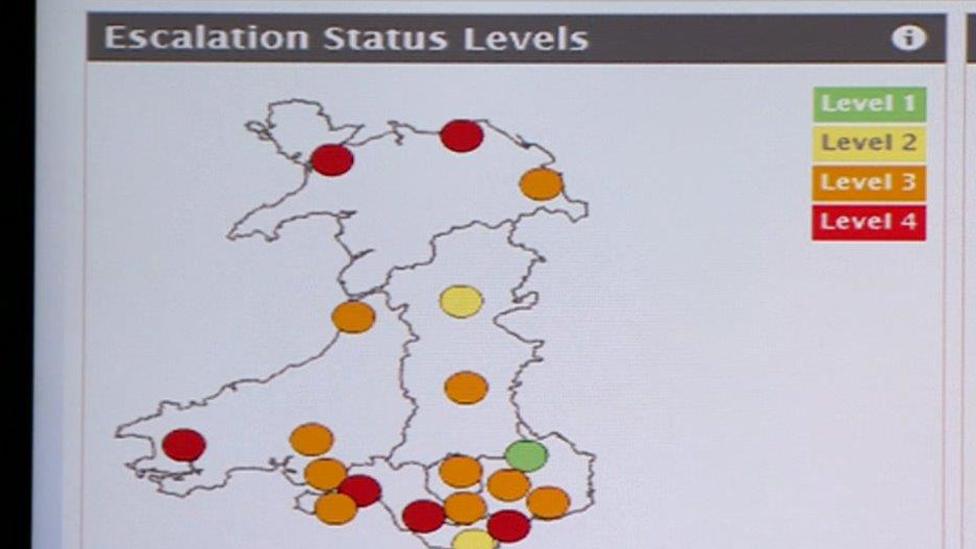
NHS Wales officials keep across the unfolding pressures during winter by regular conference calls and sharing information
Analysis by Owain Clarke, BBC Wales health correspondent
As chairman of a health board for more than six years, and before then as a Welsh Government minister, Andrew Davies has certainly seen things from both sides, so what he says has weight.
But the truth is during his tenure, he has had to deal with the aftermath of one of the biggest care scandals in Wales - with serious failings in elderly care at two hospitals.
The health board has also struggled with things like A&E targets, and it has been overspending for years, meaning the Welsh Government in 2016 placed it under the second highest level of oversight and control, one step down from special measures.
So is the Welsh Government interfering too much? Mr Davies argues the NHS is in fact being hamstrung by micromanagement and short-term targets.
But think for a minute. If the Welsh Government took a more hands-off approach, not only in the case of Swansea Bay but with Cwm Taf Morgannwg and its maternity failings, or Betsi Cadwaldr in special measures, many opposition politicians would be up in arms demanding ministers get stuck in.
What is clear is that in Wales, we have a small number of big NHS organisations and this means it is much easier for civil servants in Wales to keep an eye on what's happening.
Officials would argue that during critical periods like winter, when demands can change by the hour, they need to make sure that health boards across Wales are working together.
I think the main point Mr Davies is making is that he argues that the Welsh Government needs to be clear about what its role is.
If it wants to be really hands-on it needs to be honest about that - not just blame health boards when things go wrong and take the credit when things go right.
- Published27 May 2019
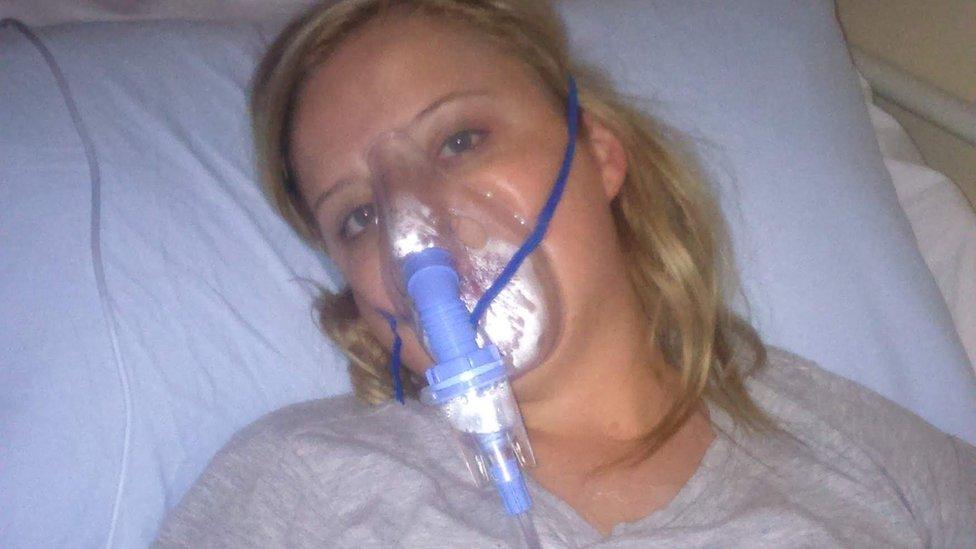
- Published28 June 2019
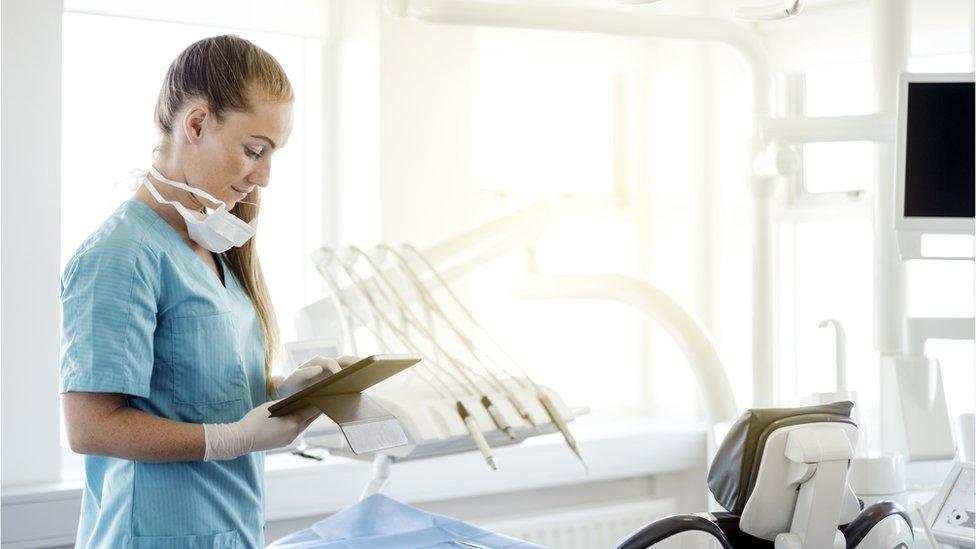
- Published17 June 2019
